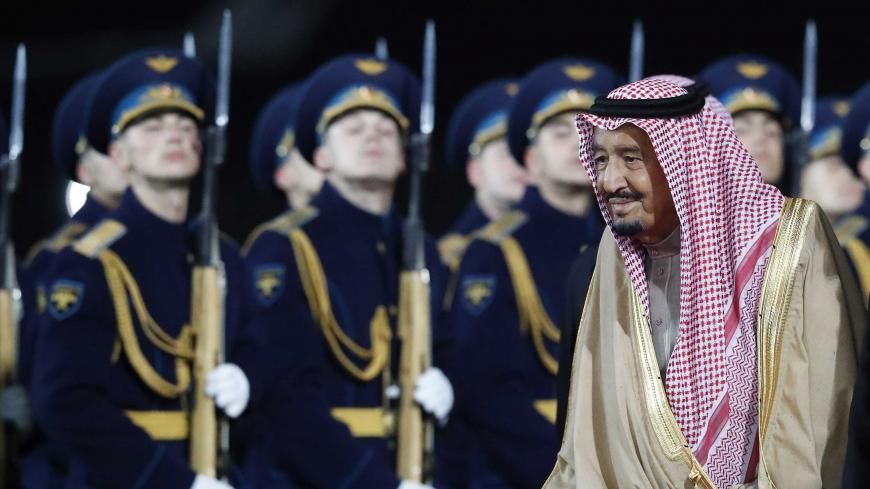Saudi King Salman bin Abdul-Aziz Al Saud’s first-ever official visit to Moscow made the headlines both in Russia and the Middle East. Rescheduled several times and organized in total secrecy, the four-day visit was dubbed a historic development in Russian-Saudi relations by almost all observers. The sheer size of the delegation accompanying the king, which included senior officials and CEOs, all of whom had an extensive program with Russian counterparts, speaks volumes about the seriousness of the parties’ intentions. The sense that one could get observing the Moscow diplomatic scene this past week was that Riyadh does not have time to nurture a relationship with Moscow and intends to secure a conflict-free partnership with the Russians by fixing all outstanding issues with them in one go.
The impression that Salman's visit was badly needed to kick-start Saudi Arabia’s underdeveloped relations with Russia conflicts with the fact that since he ascended to the throne in January 2015, both countries have been steadily increasing cooperation. The king’s son, Mohammed bin Salman, who seems to be increasingly taking over the Russia file, has visited Russia and met with President Vladimir Putin several times over this period. It was Mohammed who signed energy and investment deals with Moscow, and it was on his watch that Russia and Saudi Arabia negotiated oil production cuts.



